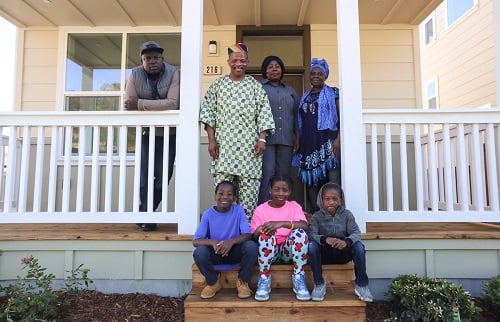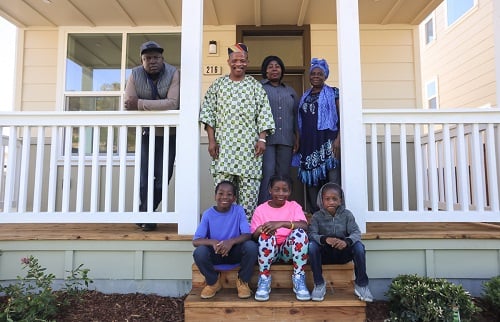Addressing Racial Disparities in Housing
July 9, 2020 Habitat News Advocacy

At Habitat, we believe that a decent, stable home is a foundation on which families can build success. Affordable homeownership means a family’s stability and self-reliance, the power to build a safe and healthy future, and more opportunities to thrive.

It’s important to recognize, though, that the journey to homeownership is rife with roadblocks, with housing disparities that make it difficult for families of color – particularly Black families – to access the opportunity. Housing plays a major role in segregating communities of color, and it’s an injustice with deep roots. A brief look at just our more recent history reveals an evolution of unjust housing practices and policies dating back to the early 1930s.
With Jim Crow Laws still in effect, segregation made access to quality education and housing hard to achieve as a Black American. The practice of redlining – which denied mortgage loans to qualifying Black families based on the area they lived in, rather than their qualifications – further segregated communities, making it close to impossible to purchase homes near job opportunities, healthy environments, and good schools. This meant many Black families were consigned to living in industrial areas with environmental toxins that threatened their health, areas disinvested of the funds and tax dollars that could bolster schools and services. These systemic injustices left these families with few opportunities to break the cycle of poverty.
Then, in the wake of Dr. Martin Luther King, Jr.’s assassination in 1968, the Fair Housing Act was passed, an achievement of the Civil Rights Movement. It outlawed housing discrimination on the basis of race, color, national origin, religion, sex, familial status, and disability – but the over 50 years that have elapsed since its passing demonstrate that our county has more work to do in terms of enforcement and realizing the authors’ aims of a more just and integrated society.
So, while today we stand on a legacy of progress, we continue to experience the residual impact of racial discrimination and systemic injustices in our housing landscape, and communities of color continue to be marginalized as a result. We must unite to change that. One way is to advocate for housing policies and practices that further our vision of a world where everyone has a decent place to live.
Habitat for Humanity has launched a national campaign to expand housing affordability for ten million people in the next five years. The Cost of Home campaign has four essential policy priorities:
- Increasing the supply and preservation of affordable homes
- Optimizing land use for affordable homes
- Equitably increasing access to credit
- Ensuring access to and development of communities of opportunity
We must work together to address racial inequalities in housing. By educating and understanding the history behind housing policies and practices, we can all advocate for a world where EVERYONE has a decent place to live – regardless of race, color, national origin, religion, sex, familial status, and disability. By acknowledging the historic patterns of racial discrimination that still deeply impact our communities we can address these patterns and create movement forward. You can help Habitat advocate and fulfill the Cost of Home initiative to actively address racial inequities in housing and support the development of communities of opportunity.
To learn more, watch our recent conversation with The Color of Law author Richard Rothstein on housing discrimination, linked below.
Join the Conversation
Leave Us a Comment!
We love hearing from our community. Let us know what you think by leaving us a comment below.